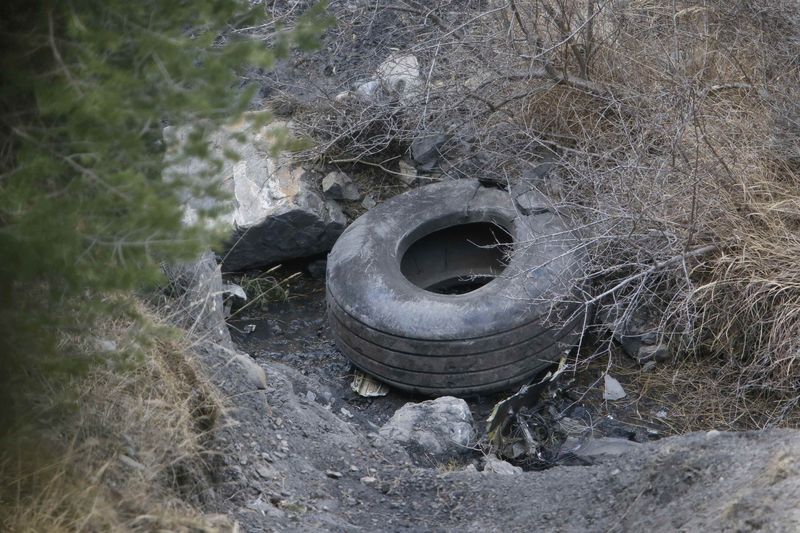PARIS (Reuters) - French investigators hope to speed up identification of the 150 people killed in last week's Germanwings plane crash by digging a roadtrack that will allow direct access to the disaster zone high on a remote Alpine mountainside.
Earthmovers are ploughing a track to the remote crash area that should be completed by Tuesday or Wednesday, said Xavier Vialenc, spokesman for 350 military police involved in the search for bodies and parts of the pulverised Airbus A320.
"We'll gain some time with that," said Vialenc, adding that body parts with 78 different DNA prints had so far been discovered.
Up to now, a team of around 15 military police with the task of combing through debris have had to be helicoptered into the rocky Alpine ravine or make their way there on foot, but bad weather has hampered helicopter drops, slowing the process.
Vialenc confirmed that the second of the plane's "black box" flight recorders had yet to be found. They hope that will build on the information from a first flight recorder that has led judicial investigators to believe the plane was deliberately driven into the mountainside by co-pilot Andreas Lubitz.
All 150 on board, mostly German and Spanish, were killed in the March 24 crash of the plane that was flying from Barcelona to Duesseldorf.
As investigators continued their search, staff from German airline Lufthansa and its Germanwings low-cost subsidiary were deployed to help 325 relatives of victims who are being housed at a hotel in the southern French port city of Marseille, from where they can be ferried closer to the disaster zone.

Lufthansa has offered to pay up to 50,000 euros (39,703 pounds) in immediate financial assistance per passenger aboard the crashed plane, a spokeswoman told Reuters on Friday.